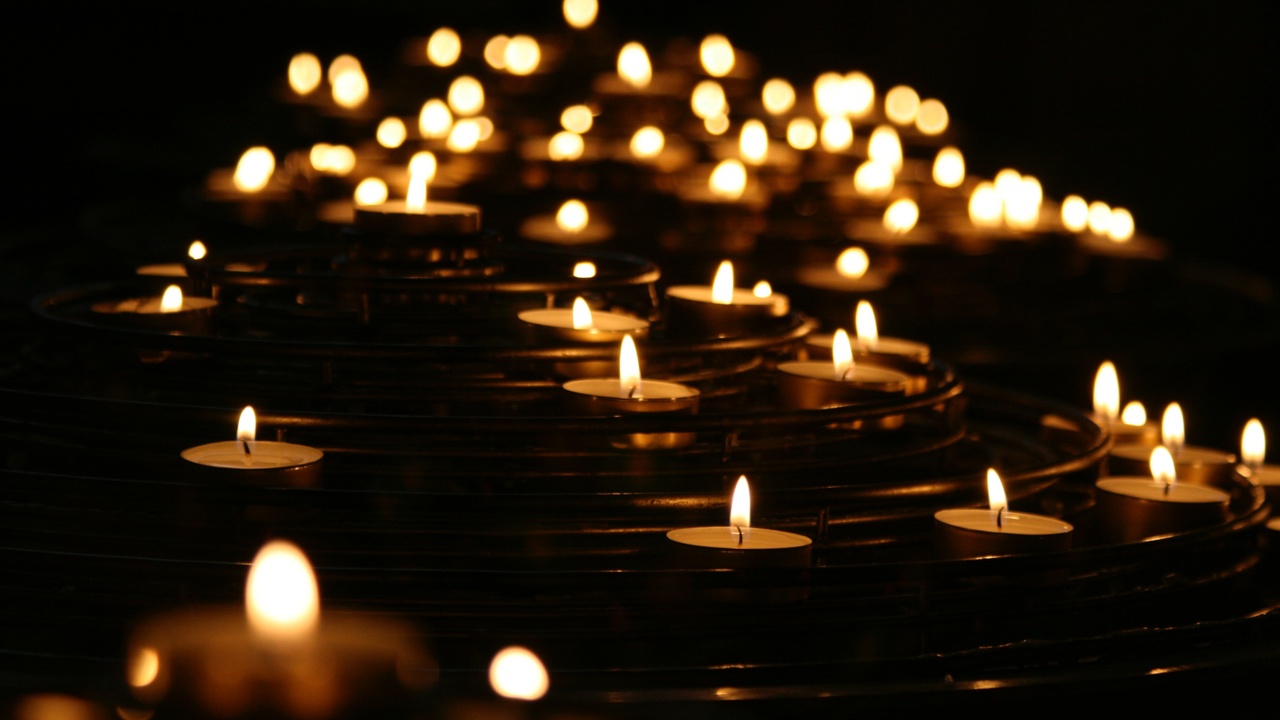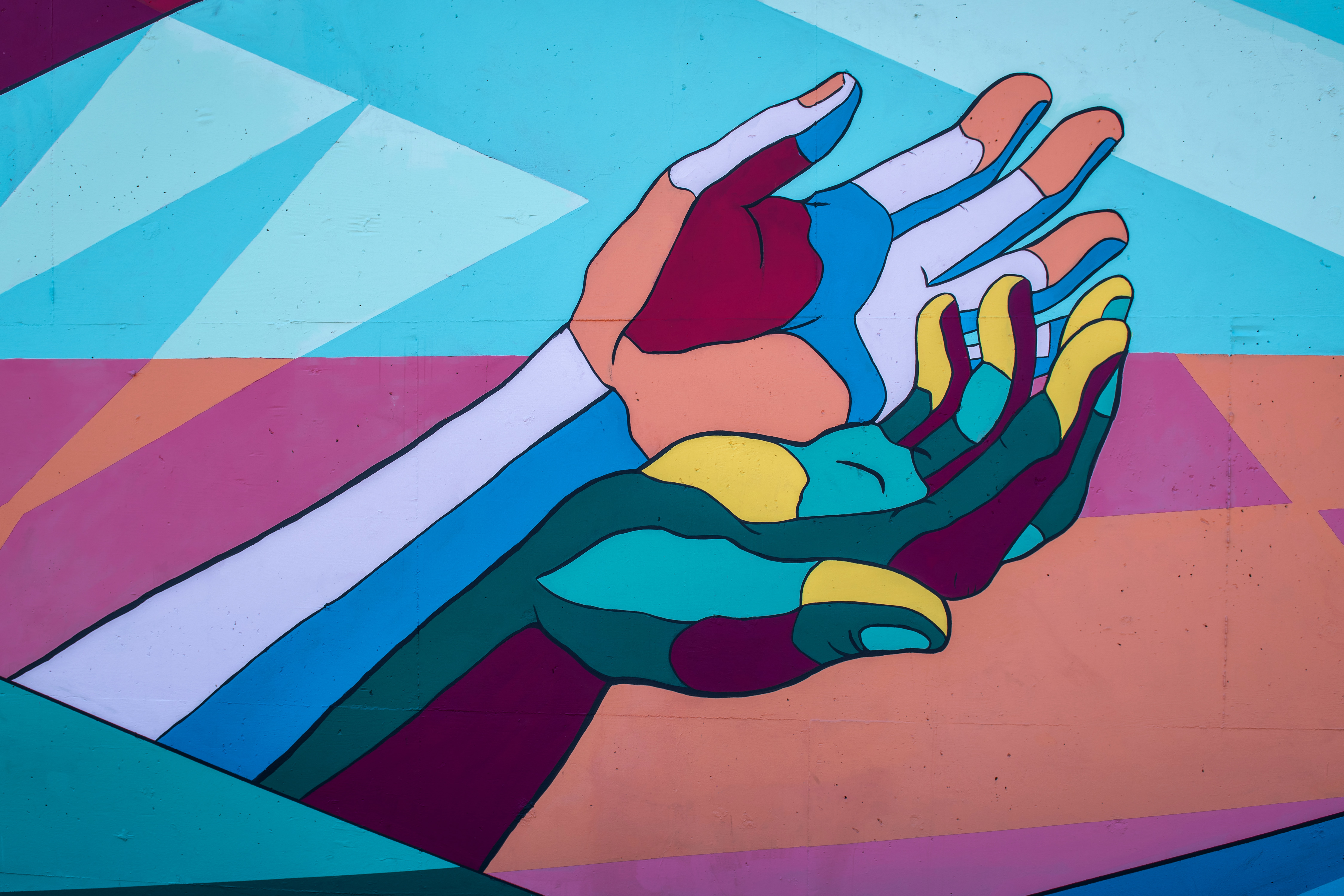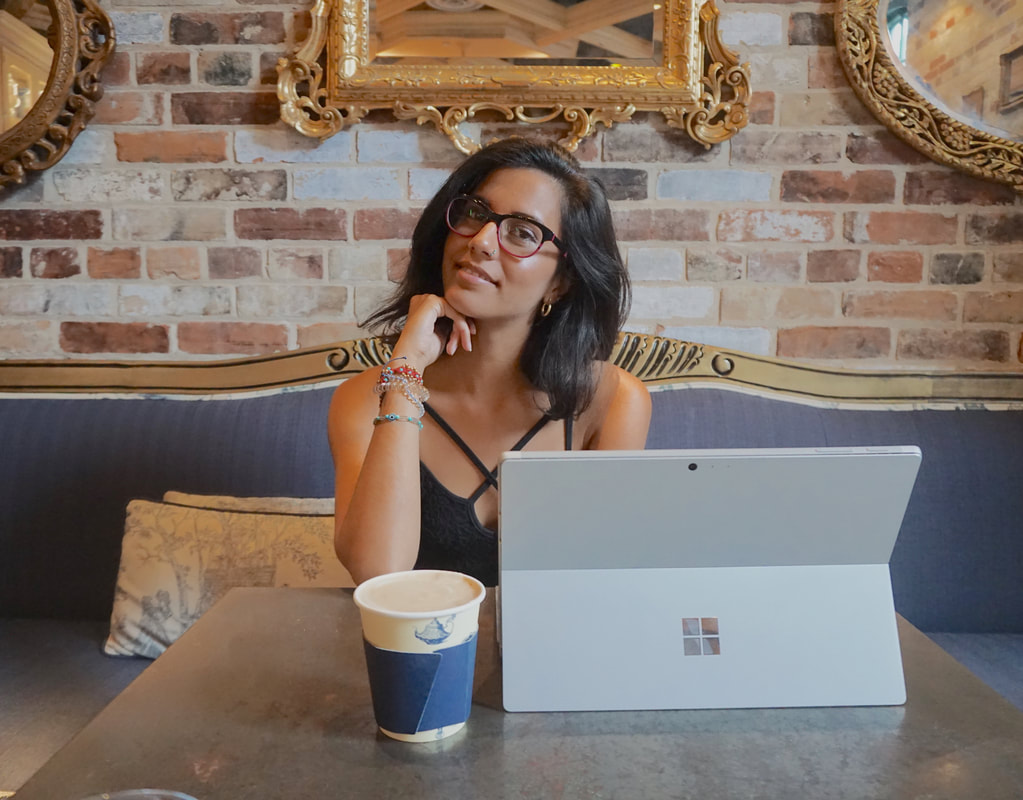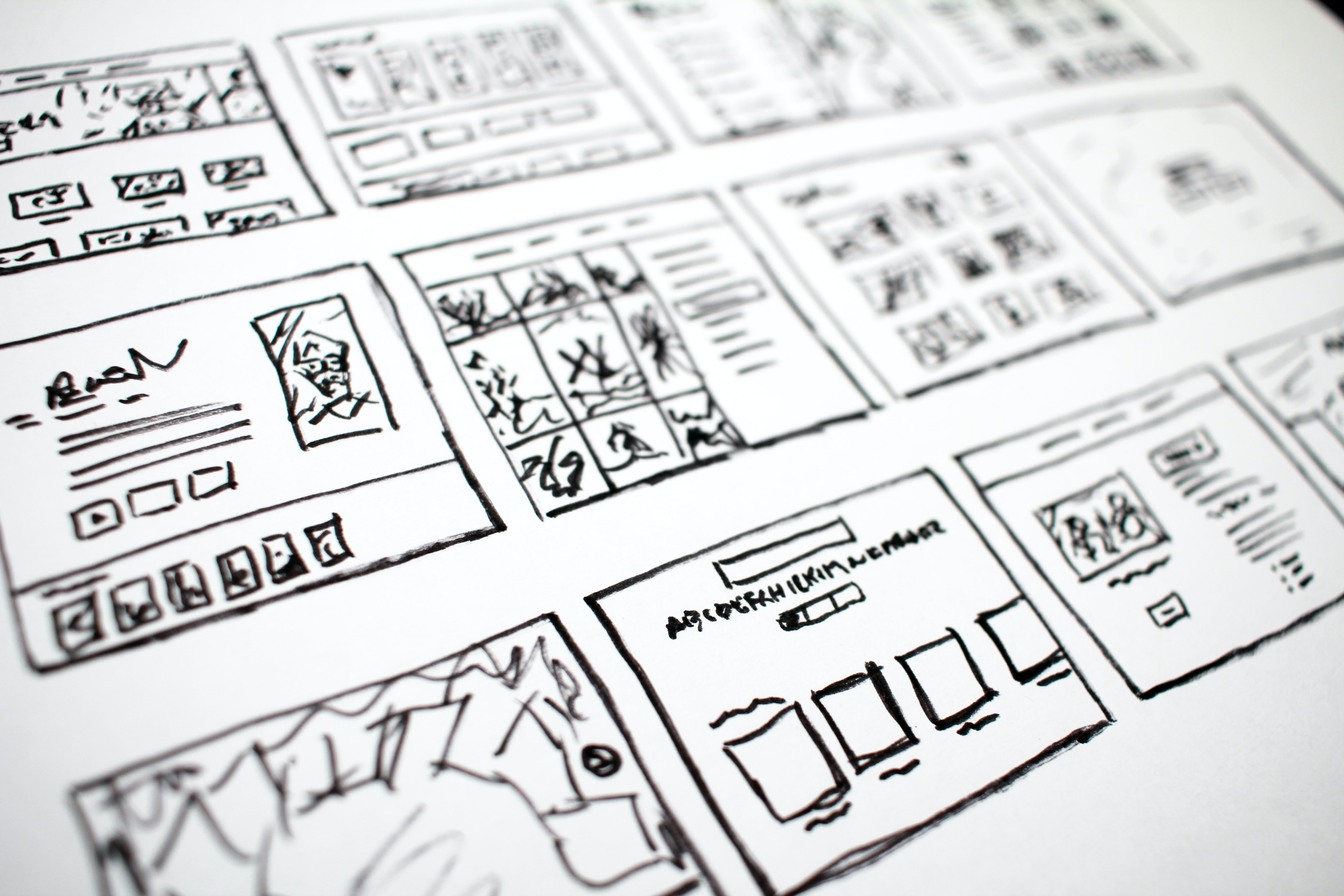A Reflection: WildSeed 2020 Part 1
Apr 12, 2021
Rupture, Grieving and Repair: 2019
**This post is the first of three updates about Aaron Goggans' WildSeed work in the past year. Be sure to check out part 2 and part 3**
At the end of 2019 I decided to embark on a new path. I was unsure as to what that would entail (I’m still unsure at times.), but knew it revolved around living my purpose — that is, being community-supported in my vocation.
Initially, I tried to pursue my path through the worker-owned collective I co-founded: the Insight-Incite Collective. I talked with different people about the robust work being done within the D.C. Movement for Black Lives (M4BL) ecosystem, and began mapping out how each project fed, or could feed every other project, whether directly or indirectly.
I thought about which campaigns, collaborations and/or events were most impactful, and all of the work necessary to make those things possible. I then met with people, one-on-one, about what I’d mapped out, to see what they would add or change. My sister, April Goggans, along with comrades, Reece Chenault and Aja Taylor, were critical in thinking through the landscape.
Katie Petit, Lasitha Ranatunga, Jocelyn Fong, Richael Faithful and Nora Rasman also supported the early stages of planning. With the assistance of the folx above, I distilled the blueprint into a map of the key radical POC-led work happening in D.C. I then incorporated what I thought was needed to fill in the gaps/opportunity areas.
I’d hoped to spend 2019 building the blueprint around how to fill in the aforementioned gaps. Alas, 2019 had other plans.
Those who are close with me know that 2019 was a year of personal heartbreak in terms of movement work. I transitioned away from the vast majority of the activist community I’d led, loved and been groomed and mentored by. Other important relationships ended, including the worker co-op.
In reflecting, I saw how I’d allowed movement work to transform me into a person less capable of articulating true liberation with others. I also saw that I was not alone in that. Around this time, my partner--Sandra--and I were exploring what it would look like to build an intentional community of chosen family with a friend of ours, Danielle St. Louis. We were imagining the ideal world we could live in.
We came up with questions that have guided me ever since:
- What are the collective rituals we may use to metabolize toxins that arise from subverting empire?
- How do we support people through the stress and toxicity of movement work?
- What loving intervention would allow them to be more capable of articulating our collective liberation?
- How may we borrow from and display the tantric Buddhist concept of turning the poison into a salve?
These questions framed and allowed me to most constructively process the immense grief and loss I felt in 2019, so much so, they became essential to my everyday thinking. I could no longer be in movements as they were (and most still are). I also couldn’t politically stomach doing prefigurative work to build the world that I wanted, that was divorced from mass struggles to dismantle the world as it currently exists.
As activists and organizers, we all know that every city is littered with groups that tried to build a new world, but instead became mere enclaves of whiteness and self-isolation. Thus, the idea of WildSeed as a place to explore, experiment and search for those collective rituals, was born.
I knew this was not a question that could or should be pursued in standard 9am-5pm fashion, or even worse, as a side hustle after work. Sandra and I have a dear friend, Annie, who has a radical relationship to her own wealth, and so her and her husband have been giving it away for years. She’s deeply invested in movements for social justice and spiritual liberation. She’d also supported me the year before, with a large sum of money that had allowed me to focus on healing and visioning. It was that year of self-reflection and self-work that birthed the idea of WildSeed. I spent 2020 making this goal a reality.
Two Visions For WildSeed

The first thing I did was assemble a group of people I believed were in alignment with my vision. If 2019 taught me anything, it was that I will no longer try to convince people to do anything. My commitment is now to finding ways for people to come together at the intersection of the work they want to do and that which needs to be done to get free.
I have a strong desire for people to collaborate in ways that are generative, and where we may follow the energy of our unique collective and individual life purposes. Eventually, we pulled together a small team of people with time, energy and alignment, to begin exploring what WildSeed could be.
Conversations with Sandra, along with my sisters, April Goggans and Erika Totten, made it evident that WildSeed needed to support spiritual community, as well as assist folks doing movement work. Sandra, Erika and others had been doing amazing things as spiritual workers in and around movement spaces. However, to make ends meet and make their gifts economically sustainable, they’d been forced to become small business owners.
They, like many women of color, have families to support. Despite their best efforts, the logic of capitalism — that is that things like efficiency, “marketing,” making things legible and hiring employees or consultants--began to subtly influence and/or hamper their spiritual work. In many ways it forced them to contort their gifts into commodities.
Moreover, making spiritual services “marketable,” also meant there was pressure for Erika and Sandra to become “personalities,” rather than spiritually grounded individuals. New Age spirituality has been thoroughly commodified into lifestyle brands that one can buy, by modeling themselves after some watered down version of a guru.
The expectation that you “practice what you preach” has morphed into a belief that your private life and story are part of the package for your audience. This meant that two deeply private people were expected to be “accessible” to their audience in ways that were not only invasive, but paradoxical to the kind of solitary reflection and regeneration that spiritual work mandates.
At the same time, my sister, April, was facing an eerily similar set of barriers in movement spaces. While she’s a committed anarchist, April is also a pragmatic organizer and staunch advocate. Every well-versed organizer knows organizing eventually means building an organization.
Even in a mutual aid model, organizing takes money; at a certain point, the money needs its own bank account. That means the organization needs to be incorporated. This means accounting and taxes, sifting through emails and mailboxes and needing an administrative structure. Soon, much of April’s time was spent organizing the admin duties of the collective, rather than organizing within the collective. To some extent, this was also true for most of the other members.
Five years after its inception, Black Lives Matter DC (referred to hereinafter as BLM DC) was no longer a scrappy direct action and event planning team. It had become a movement and resource hub for Black people.
BLM DC became a hub in a mutual aid network that collected and distributed thousands of dollars worth of supplies and currency each week, to hundreds of residents in Wards Seven and Eight alone. While there were dozens of people and organizations involved in the work, BLM DC was one of the few organizations that held the money. The money had to be tracked and accounted for — not exactly the revolutionary work most people join a movement for.
As it turns out, this was just one of the many issues facing BLM DC. On top of administrative responsibilities, they were also under constant security threats from the police, the alt-right and other groups. They were often so focused on keeping their community safe, that they had little time to think about their own well-being and safety.
Like many chapters across the country, BLM DC was at a crossroads. It had to scale-up to meet the challenges of Donald Trump’s genocidal neglect during a pandemic. At the same time, it didn’t want to take the obvious path — becoming another community non-profit. It didn’t want to hire an executive director and find a board. They needed a way to grow and build their administrative capacity, while simultaneously staying true to their radical and abolitionist views.
It quickly became clear to me that helping movements subvert empire, would mean helping them overcome practical organizational development hurdles. I took all of this information back to the core team in hopes that it would inform how we think of growing WildSeed moving forward.
It became obvious that there were many competing ideas we had for what should be the focus of our work for the year. True to form, we wanted to figure out an effective and novel way to get to alignment on our work. We didn’t want to just vote for the most watered down idea to get a majority of votes. We wanted to collectively build the proposal that we would be most excited about and motivated to execute. The core team listed all of the work we could do in 2020, then used a dot voting system to see where we had the most energy.
Dot voting is when everyone gets a certain amount of virtual dots (30 in this case), then uses an app to put the dots (vote for) on whatever options they have the most interest in, skills around and capacity to be part of. We used Loomio to vote virtually.
Overwhelmingly, supporting movement groups and building robust spiritual communities were chosen as priorities. Thus, WildSeed began to develop as a support organization that blends radical anti-capitalist politics, with a trauma-informed spiritual lens and decentralized organizational development.
We decided to take a two-pronged approach to cultivating the world we want. We committed to amplifying spiritual leaders like Sandra and Erika, so they’d be supported and have a stronger sense of community. We began building systems that would allow us to share resources and processes that could sustain such practices.
Not wanting to get too far from our roots, we wanted our second prong to place our feet firmly in the world of social movements, by supporting groups like BLM DC, that are fighting to subvert empire.
Radical Administration

It became clear early on that WildSeed was going to have to expand and bring on some administrative magicians. The art of administration, that is understanding all of the tasks necessary for the effective operation and management of an organization, while also ensuring human inputs and outputs appropriately align, is often an afterthought in many movement spaces.
At the height of revolutionary activity in the previous century, it’s no coincidence that the highest organizational position was often the general secretary. If power is organized people and organized money (as progressives often maintain), then the people who hold the organizational chart in their heads and track the money, are secret power-holders within organizations. As this role became held by women, more and more, it also began to be divested of power and eventually divested in completely.
Far too many movement spaces lack people who focus solely on administration. Typically, the leader of the organization gets stuck with all the administrative work, regardless of whether or not they are gifted in this area. This generally serves to reinforce their power within the group.
The leaders are the only ones who understand all of the resources the group has access to, where those resources are, how they need to be tracked and often, how they are replenished. This creates a huge problem when those leaders also play a role in deciding what the group should do strategically. In these situations, it’s hard for alternative solutions to be presented if the leader has to explain their feasibility. This lends itself to a lot of overworked core organizers who become too stressed to collaborate and co-create, therefore default to domination strategies to move work forward.
It can be tempting to think that highly talented administrators no longer exist or are unwilling to volunteer for left-leaning political groups. Yet, in the corporate world (including corporate cultured non-profit organizations and foundations) administrative skills are still relatively valued, particularly those of project managers. It’s common for foundations to have several employees on staff who are well-paid to perform administrative tasks.
It’s not that these folx don’t exist, it's that they tend not to be “out” in movement spaces. This is in large part because the movement doesn’t value administrative work in the ways it once did.
When we do place value in the administrative aspects of our work, we expect it to be magic. We want people to be able to jump in and organize our lives. Administrative organizing is organizing. It takes time to develop relationships and assess what's needed, as well as the capacity of all stakeholders.
WildSeed was fortunate. While we were trying to figure out a way to build administrative support, the talented, amazing and indomitable Chany Singh came into our lives. Chany is an incredibly talented virtual assistant, life coach, belly dancer who is fluent in ASL and skilled in helping visionaries implement their visions. At the time, Chany was doing virtual assistant work for Sandra’s two projects: Everyday Feminism and Re-Becoming Human.
Sandra quickly realized that Chany is a rare talent, so suggested Chany for WildSeed. After a couple of conversations, Chany was onboarded and the project really started to take off.
Chany helped all of the pieces of WildSeed come together. She organized our website, helped edit the GoFundMe language for our first fundraiser and assisted with the production of our inaugural content . Together, Chany and I cultivated a series of videos that explained the thinking behind WildSeed. These would later morph into a podcast season on Ravi’s show, Awakening.
Building Infrastructure for the Future

Even as we were settling on our visions, it was clear to Reece and me that we needed to think long-term with WildSeed. As the ones with the initial mandate to pull all of the different visions of what this could be into a concrete whole, we knew we’d have to be creative with WildSeed’s legal structure.
We knew that it was a spiritual community whose deepest spiritual commitment was the abolition of oppressive systems. It was a spiritual community that believed when Jesus said “Render unto Caesar what is Caesar’s,” He meant to give the kingdoms of man as little as possible. In an ideal world we wouldn’t have to register our spiritual community with the state. We both found the idea of the government having a say in how we sought spiritual liberation, distasteful. Therefore,we were initially attracted to the religious exemption because it offered us the freedom to organize ourselves and our social relationships how we wanted.
Still, the tax exempt restrictions would be hard to work around. The reporting requirements alone mean that a certain kind of legibility is required. The way you organize yourself has to be clear to the state, so they may ensure you’re being “charitable.” While this likely started as a good idea (the earliest laws were passed because John D. Rockefeller’s first non-profit had a bigger budget than the state government it was operating in), it has turned into policing the politics of radical organizations. Much of this is outlined in the book The Revolution Will Not Be Funded.
In order to get non-profit funding, you have to be able to prove where you spent the money and show your impact. Turns out, proving you helped make the world a better place is actually quite difficult to do. How do you judge one good action compared to another? How do you realistically and accurately determine whether a failure was a waste of time or useful experiment towards a better future? Turns out, you can’t; many foundations don’t even try.
Like most fields that attempt to prove their worth, foundations turn to some version of econometrics and focus on “key indicators.” You can’t tell whether Black people were empowered but you can track things like how many new jobs people get or whether income increases. You cross your fingers and hope that jobs and income equal feeling empowered (and hope that the masses confuse feeling empowered with having power). However, anyone who works with middle-income white communities, knows this is not the case (entitlement does not come with a sense of positive empowerment.)
Then of course, there's the fact that you also have to prove that the people you’re giving money to, deserve it. This perpetuates cycles of pimping out people’s deepest traumas in order to help them. It forces them to take on a disempowering narrative in order to get support. People who are thriving, don’t need charity. All of these factors mean that most non-profits, even the ones with radical politics, end up mostly managing people’s oppression rather than abolishing it.
So we decided to register as a religious organization, as this closet government approved description of what we are trying to be. Yet one of our core spiritual principles, that of mutual aid, is not considered a charitable expense. Legally, helping your friends isn’t actually charity. You have to open up your resources to a “charitable class.” While this makes sense to ensure that Bill Gates and Elon Musk don’t start a “billionaire’s church” it makes building a community outside the logic of capitalism at best, a legal gray zone. We are likely going to have several legal structures, all owned by the religious community, so that we support the members of our society while not running afoul of Caesar.
Getting to this legal structure took hours of meeting with tax lawyers as well as hours spent creating possible org charts and graphing out possible funding streams. It meant that much of my time was spent imagining what WildSeed would be before it could legally be anything. This, in effect, hindered our ability to start small and let WildSeed grow organically and emergently. That only works if you are comfortable with it growing along the line of capitalism, which we were not.
**click here for part 2 and part 3***
Aaron Goggans is the Dream Gardener at the WildSeed Society. He's a writer, facilitator, organizer and architect of the future. Aaron builds movement infrastructure before people know they need it and helps them achieve things even he never imagined were possible. Aaron is a co-creator of Black Lives Matter: DC and a handful of other projects that have made liberatory marks on the world.
Stay Connected with WildSeed Society!
Join our mailing list to receive the latest updates and offerings.
We hate SPAM. We will never sell your information for any reason.

